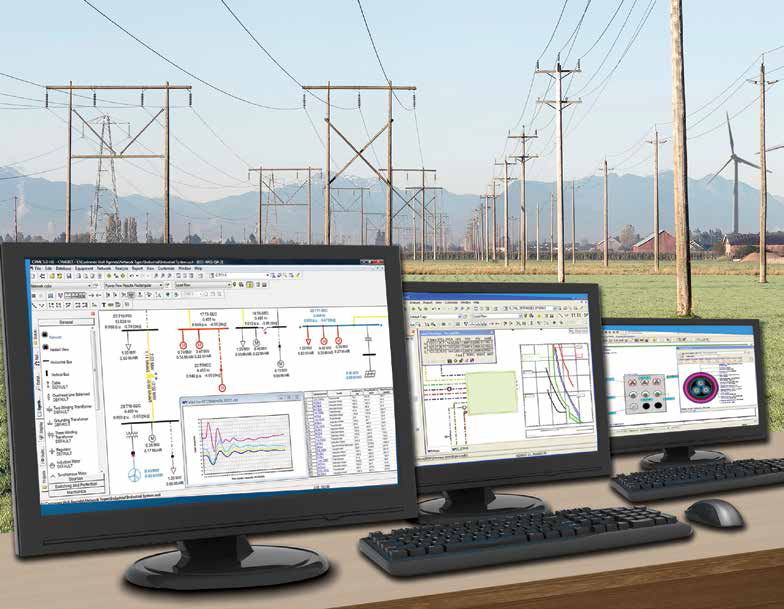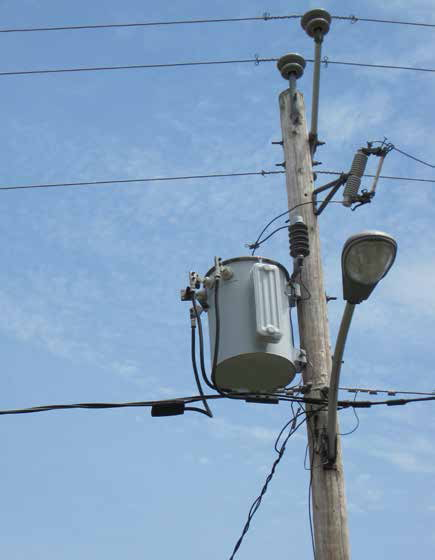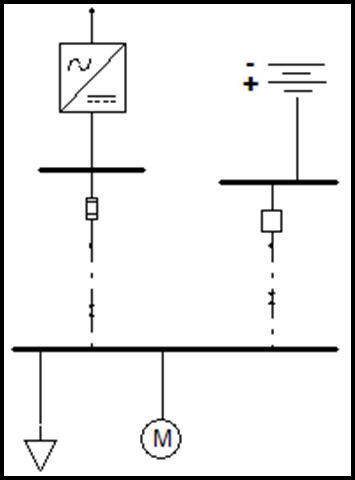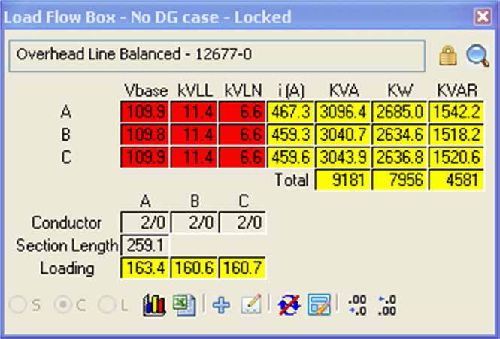CYME 7.0 - New Features!!!!!!!!!
 |
CYME 7.0 – New Features
Cooper Power Systems is proud to introduce the CYME 7 Series; its latest
generation of power engineering software for the coming years.
The CYME 7.0 introductory version brings forth new engineering analyses and
tools, as well as additional equipment modeling and one-line diagram editing
capabilities to help you address with confidence the latest transmission,
distribution and industrial issues.
|
|
CYME 7.0 for Distribution, Industrial and Transmission Systems
|
|
CYME 7.0 is a version which combines features based on users’
needs, new engineering analyses, improved functionalities and
refined capabilities to bring you the advanced solution you need for
all your power engineering studies.
Key features of CYME 7.0 include:
■■ Volt/VAR optimization
■■ Low-Voltage distribution system modeling
■■ Advanced protective device coordination
■■ DC systems modeling and analysis
■■ Python® scripting tool
Analyses such as load flow, load allocation and load balancing have
new options to extend their capabilities.
|
CYME’s equipment library has been extended with the addition
of by-phase shunt capacitors and DC equipments (batteries,
chargers, uninterruptible power supplies, etc). An impedance
estimation function is now available for synchronous motors,
and a RLC value estimation function is available for the design of
harmonic filters.
This new version also increases the ease and flexibility of using
various CYME functionalities with the addition of user-defined
analysis templates, result boxes customizable per device, usage of
keyword concatenation and grouping of reports.
CYME 7.0, with all its novelties and enhancements, is without a
doubt the tool you can count on for all your power engineering
analyses.
|
CYME 7.0 - New Features
The latest generation of power engineering software for the coming years.
|
Low-Voltage Secondary
Distribution System Modeling
To address utilities’ increasing interest in
studying the network as a whole, the CYME
7.0 software offers the possibility to model
the secondary distribution system such
that each low-voltage spot load can be
accounted for in any analysis.
The detailed secondary distribution system
includes:
■■ Single-phase center-tap transformer
model allowing a half or full secondary
voltage connection
■■ The modeling of triplex and
quadruplex service drop cables
■■ Low-voltage spot load connection to
the center-tap
As a new network type, the low-voltage
secondary distribution system can be
studied individually or along with the rest
of the distribution network to calculate
accurately secondary system losses and
identify equipment overloads.
 |
Volt/VAR Optimization
The Volt/VAR Optimization (VVO)
module helps engineers to optimize their
distribution network by finding optimal
settings for Volt/VAR control devices.
Two robust algorithms are used:
■■ Conservation Voltage Reduction
(CVR) to evaluate all Volt/VAR control
devices simultaneously
■■ VAR Optimization to find optimal state
for capacitors in the network
CYME’s VVO module also features:
■■ Capacitor sequencing
■■ Multiple power system constraints
■■ Single or multiple load scaling factors
■■ Economical benefits evaluation
■■ Customizable voltage profile charts and
reports
DC System Analysis and
Modeling
CYME 7.0 extends its modeling and
analysis capabilities with the addition of DC
system modeling and analysis.
DC network equipments that can be
modeled in CYME 7.0 include:
■■ Batteries, chargers
■■ Converters, uninterruptible power
supplies
■■ DC motors, DC loads
■■ DC cables
Load flow and short-circuit analyses can
be performed on the DC network alone or
along with the AC network.
 |
Protective Device Coordination
CYME 7.0 brings numerous enhancements
and new features to its Network Protection
Analysis module:
■■ Revamped TCC settings dialog boxes
■■ Live preview to show immediately on
the TCC plot the changes made via a
dialog box
■■ Sequence of Operations - a new
analysis that calculates the operating
time and determines the order of
operation of the protective devices.
The Network Protection Analysis module in
the CYME 7.0 suite of application can help
network protection schemes and help you
find the adjustments needed to make the
network more reliable.
 |
|
Python® Scripting
With the introduction of Python Scripting
in the CYME software, the possibilities to
extend the CYME software are unlimited.
The embedded scripting tool allows you to
execute commands and scripts. Through
Python scripts, you can model your network
or create your own algorithms. The easy
syntax of Python makes it the ideal tool to
run automatic batch analysis and to tailor
the application to suit your needs.
The Python Scripting tool also features:
■■ Exception handling
■■ Scripts written in any text editor
■■ Execution within the CYME software or
your Python IDE

Network Diagnostic
The CYME 7.0 software comes with the
new Network Diagnostic tool that will help
you troubleshoot your network.
The tool offers three levels of verification
and can perform these verifications in
relation to specific analyses.
Use the Network Diagnostic to find
erroneous data and missing values on your
network to help solve non-convergence
issues.
|
Result Boxes
Multiple enhancements have been made
to the Result Boxes to make the display of
more useful information possible.
■■ The contents of a result box can now
be customized per device.
■■ Precision buttons let you easily change
the precision of the displayed results
■■ A Locate button helps you find the
displayed device associated to a
locked result box
■■ The result box title can be changed to
distinguish between different boxes
displayed

LoadFlow and Short-Circuit
Analyses
New features for the Load Flow and the
Short-Circuit analyses include:
■■ The possibility to apply tolerances on
transformer impedances according to
IEC or IEEE standards, synchronous
generator impedances, line and cable
lengths
■■ ANSI and IEC short-circuit analysis now
supports an “all duty types” calculation
Transient Stability
Global control settings and assignment
of different system frequencies by zones
are now options that are supported by the
Transient Stability analysis module.
|
Load Allocation
Constraint relaxation options have been
added to the Load Allocation analysis to
allow the removal of certain constraints to
help the analysis converge.
Load Flow Contingency
New contingency event types have been
added, such as:
■■ Zone device modification – to apply a
power variation to machines/motors in
a specified zone
■■ Global device modification – to apply a
power variation to one type of machine/
motor
■■ Open / Close – to open or close a
selected type of protective or switching
device
Harmonic Analysis
The impedances estimation function has
been improved for some harmonic filters
and has been extended to be available for
more filter types.
Motor Starting Analysis for
Industrial Applications
The Locked Rotor Analysis (LRA) and the
Maximum Start Estimation application
are extended to industrial applications
to complement the Dynamic Motor Start
Analysis module.
Enhanced VFD Modeling
The Variable Frequency Drive (VFD) model
now includes an option to connect the
motor to the secondary terminal with a
cable.
|











